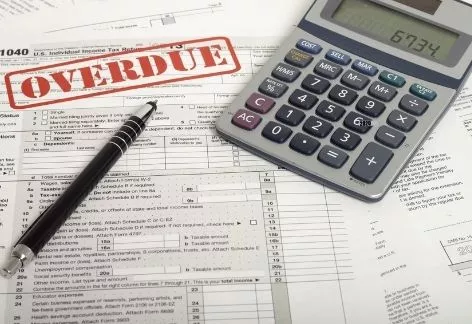To stay in good standing with the IRS, you must avoid liens. But, what is a state tax lien and how can it be resolved?
A lien of any kind is a legal claim on a person’s assets or property, to serve as collateral for a debt. In practical terms, liens effectively allow a creditor to take precedence over other creditors and establish a priority for their debt to be repaid. A lien is not a forceful claim of a person’s assets or property. A lien is not enough to take away the farm, or sell the car, for example.
State and federal liens are some of the scariest liens to be exposed to. These have the backing of the government – and they usually occur because a taxpayer racked up a significant amount of tax debt and has been unable to repay their debt for some time.
When you have a lien against your tax account, you will have a significantly harder time seeking financing of any sort. Liens serve both as a pressuring tool for state and federal authorities (or large creditors) to coerce repayment, and as security. For example, a lien on your car means if you sell it, the proceeds must be used to satisfy your debt, first. You can take certain actions to bypass your lien, or even avoid it outright.
Explaining State vs. Federal Tax Liens
Different jurisdictions are responsible for collecting different taxes in different parts of the country, and each of them bear the individual responsibility to enforce either state or federal tax law. You might already have noticed that federal tax rules can often differ from state tax rules – and that some states have taxes that other states don’t.
A state tax lien is the same as a federal tax lien in both theory and execution, the difference being that the IRS is responsible for issuing federal tax liens, while local state governments issue state tax liens.
In California, for example, the Franchise Tax Board (FTB) issues a statutory lien on all property that you own or have the rights to in the State of California. This includes both real and personal property. You will receive mention of this via multiple notices and letters warning you of your tax debt, followed by a public Notice of State Tax Lien with one or multiple county recorders, as well as the Secretary of State in California.
In the past, both state tax liens and federal tax liens were effectively guaranteed to affect your credit score. However, times have changed. Credit reporting agencies are no longer reporting tax liens, despite liens being part of the public record. That being said, tax liens – both state and federal – can still have an impact on your credit.
A lien on your personal and real property may affect your ability to repay debts, seek financing, keep up with payments, and maintain your credit score. Part of the pressure of a lien is that it robs you of financial freedom and flexibility.
As with federal tax liens, state tax liens have an expiration date. The statute of limitations on state tax liens in California is ten years, for example. As with any other lien, however, this can be extended under certain circumstances. As with federal tax liens, state tax liens also attach to all real and personal property owned now and acquired in the future.
State tax liens are only attached to property you own or have rights to in that state. Federal tax liens attach to everything you own or have rights to.
Tax Liens vs. Levies
Tax debt is a serious crime, but not everyone in debt to their state or the IRS goes to jail for it. If you have accrued tax debt not out of malicious tax avoidance or illegal actions, but as a result of tardy payments, penalties, or even financial hardship, there are multiple ways to address and pay down your debt.
Failing to do so will lead to a lien. But failing to respond to the lien can lead to a levy.
Levies are what most taxpayers fear when dealing with the IRS or any state tax body. A levy represents a claim on a property, wherein the government (or another creditor, in a general sense) steps in a liquidates an asset, as debt repayment. This can be anything from real property (outside of your primary residence) to most personal property, including bank accounts.
If a levy was enough to settle your debt and pay off your due balance, you are usually given the remainder of what your property was worth. If it wasn’t enough, the tax agency may issue another levy.
Both state tax agencies and the IRS can also claim a levy on your wages. This is called wage garnishment, and it is managed through your employer. Your levy is calculated based on your income and number of total dependents, and a portion of your paycheck is withheld every paycheck, until your debt is paid.
While liens do not force you to sell or liquidate anything, they can serve as a foreshadowing of what is to come.
How Are Tax Liens Triggered?
Tax liens only occur as a result of unpaid tax debt. This might accrue over time, or could be the result of recurring penalties, for things like failing to file tax returns on time or failing to pay your due amount after the state or IRS amended your tax bill for the year.
For example, if you fail to qualify for a deduction you used to qualify for or are earning way more as a self-employed contractor but are still making the same quarterly tax payments, your local tax agency may investigate and correct your returns and demand payment for the missing taxes. As with other creditors and debtors, the IRS and state tax agencies levy both penalties and interest on tax debts.
How to Resolve a Tax Lien
There are very few ways to negotiate your way out of a tax lien. The simplest way is to resolve your tax debt. If you do not have the money to pay your debt outright, entering into a monthly installment plan and meeting your payment deadlines for at least three to four months in a row is often enough to resolve a lien.
If the reasons for the lien were erroneous to begin with – such as your tax agency making a mistake, such as striking down a deduction you do qualify for – you should talk with a tax professional about bringing this evidence to light, and getting your lien removed.
Both state and federal tax liens are usually only removed once you are both up-to-date with your tax payments, and up-to-date with your tax returns. You must file all missing returns to get back into good standing with state and federal tax agencies.
Federal and State Tax Lien Notices This August
This August marks an important time of the year for many delinquent taxpayers.
For one, the IRS has started Automated Collections Enforcement this month, on August 15th. This means that both liens and levies will be issued against taxpayers behind on their payments. If you have received a final notice of intent to levy, or received any letters about federal tax liens, contact a tax professional immediately.
Secondly, multiple counties and states have pushed the dates for tax lien sales to this month. This means that this may be one of your last chances to resolve your tax lien before your debt is sold (at which point you will have to pay the buyer, and redeem your property).
Tax liens can be frightening to deal with. But with the right professional help at your side, you can work to resolve your lien and reclaim your properties.
Contact our tax professionals today if you have received a federal or state tax lien.

